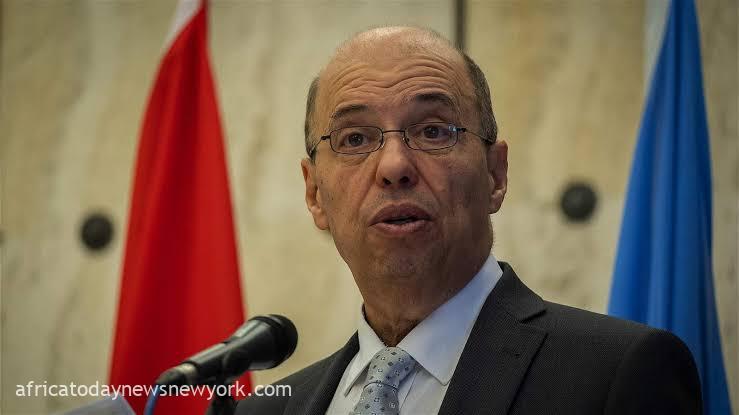In a unique secret ballot among member states on Wednesday, Morocco‘s ambassador in Geneva secured election as the president of the United Nations Human Rights Council for the year 2024.
In a closely contested race, Omar Zniber triumphed with 30 votes, surpassing South Africa’s ambassador Mxolisi Nkosi, who received 17 votes.
Africa, entrusted with the presidency of the UN’s top rights body, faced internal disagreement among its 13 council members, prompting the need for a rare secret ballot.
Following his victory, Zniber said the council’s work was ‘so important and so fundamental: the promotion of, respect toward and guarantee of human rights as universally recognised’, according to a statement from the Geneva-based body.
The foreign ministry in Rabat said Zniber’s successful candidacy came ‘despite the mobilisation of Algeria and South Africa to counter it’.
The North African kingdom said it ‘sees a strong signal sent by the international community in favour of its constructive approach, and its unifying leadership on key subjects such as inter-religious dialogue, tolerance and the fight against racial hatred, the right to a healthy and sustainable environment, migrants’ rights and the impact of new technologies’.
Continuous denunciation by Moroccan and international non-governmental organizations sheds light on the prevalent repression in the country, targeting journalists, activists, and human rights.
This frequently takes the form of trials for common law crimes, particularly sexual offenses, and digital surveillance.
Read also: Israel Finally Recognises Western Sahara As Part Of Morocco
Accusations are leveled against Morocco for allegedly employing Pegasus spyware to compromise the phones of journalists, activists, and politicians, both within the country and beyond its borders.
The Moroccan authorities have dismissed these allegations as “unjust and fantastical.”
NGOs also criticise alleged persistent discrimination against women and minorities.
Since its inception in 2006, the Human Rights Council has been dedicated to the defense and promotion of human rights worldwide, addressing instances of violations. The presidency systematically circulates among the five regional groupings on an annual basis.
In 2021, the inaugural presidential ballot took place as the Asia-Pacific group, poised for leadership, faltered in reaching a consensus on a singular candidate. Fiji emerged victorious in a competitive three-way showdown.
The president’s primary role involves presiding over council meetings; however, they also wield the authority to appoint independent experts tasked with probing alleged human rights abuses in countries.
Additionally, the president holds the power to decide the extent of action against instances of state intimidation directed at those collaborating with the organization.
A seasoned diplomat, Zniber has served as Morocco’s permanent representative at the UN in Geneva since 2018, succeeding Czech ambassador Vaclav Balek in his new role.
